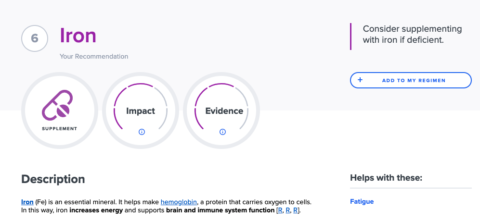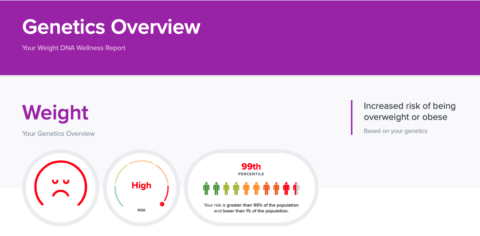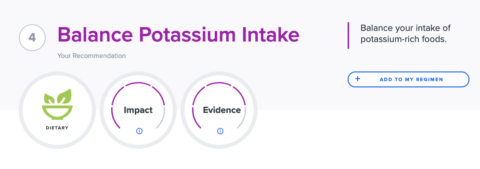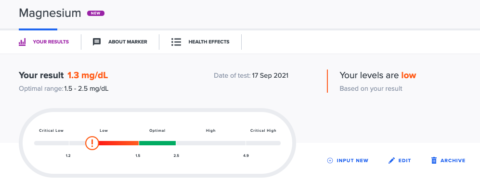
What is nutrigenetics?
First, let’s begin with a nutrigenetics definition. Nutrigenetics is a new branch of healthcare which investigates how genetics affect your nutritional requirements.
We all have different genes. Take eye color, some people have a genetic variant for blue eyes whilst others have the variant for brown. Genetics affect every part of us, including many aspects of nutrition.
Your genes may dictate how well you burn fat predisposing you to obesity, or they may make you better at controlling your blood sugar, influencing how likely you are to experience diabetes. The ways in which genetics can influence your nutrition really are countless.
To name just a few more, genetics can influence whether or not a person can tolerate lactose, how well a person can process iron, and whether or not you can tolerate alcohol. So if your genes can influence these factors, wouldn’t it be great to know if this is happening, so you can tailor your diet to avoid things like feeling tired due to poor iron utilization or feeling bloated after eating lactose?
Well, that’s where nutrigenetic testing comes in. Say you’re feeling tired all of the time, nutrigenetics testing can be used to evaluate your ability to process iron. This is performed by testing your DNA to check whether your iron processing genes are either performing better, worse, or average than those of the general population.
Once you know how well your body is functioning, you can then make a targeted plan to optimize your diet, so in this example you may need to take particular care to hit your recommended dietary allowance of iron compared to an average person to avoid feeling tired.
This process can be used for almost any nutritional component of your health, and the effectiveness of this treatment will continue to improve as more and more research is undertaken.
Unfortunately, most DNA testing companies provide little to no guidance on how you can address your genetic predispositions. If you want to learn more about how your DNA affect your nutrition and what you can do to counteract your suboptimal genes, you should look for a company such as SelfDecode that not only gives genetic risk scores, but also personalized health recommendations tailored to your unique genetic makeup.
Other uses of nutrigenetics
You can also use nutrigenetic testing to identify whether or not you may be predisposed to diseases linked to nutrition such as cardiovascular disease. It may be daunting to know that you are at an increased risk associated with a disease, but this really can be a lifesaving tool if used preventatively, as it will allow you to make lifestyle adjustments in advance of any issues, rather than having them creep up on you.
Let’s look at the FTO gene, for example. If you have a certain variant of this gene, choosing healthy fats like those found in nuts and seeds may help reduce your risk factors for heart issues.
So why does it matter?
The big question is why should you care? After all, people have been getting by fine without knowing their genetic makeup for centuries. But people were also ‘getting by’ habitually smoking, that doesn’t mean they were living an optimal life to a good age.
Not long ago, it wasn’t as simple to take a DNA test, as it wasn’t accessible to consumers directly. Today, you can take a test to understand your genetics from your home. We are becoming more and more aware of just how much personalized medicine, rather than medicine for the masses, can benefit an individual.
SelfDecode and Nutrigenetics
At SelfDecode you can gain access to a range of personalized genetic reports detailing how your genetics predispose your overall health, nutrition included. You will also be provided with scientifically proven recommendations to counteract any negative predispositions you may have based on your genes in order to optimize your nutritional health.
For example, people with a certain ARL15 gene variant may benefit from potassium to help balance their blood pressure. High blood pressure can damage the kidney, so if you have this variant you may want to make sure you get enough potassium.
Unlike other DNA companies that analyze only one or two genetic variants, SelfDecode looks at up to 83 million to give genetic risk scores and personalized health recommendations based on your DNA. Not only that, but your recommendations are personalized to help you know what you should focus on to achieve optmial health.
You can use these reports either on your own or in conjunction with your own health provider to come up with a specialized diet tailored to your own requirements. The health insights included are backed by peer-reviewed scientific studies which you can easily access from the reports.
If you identify any potential nutritional deficiencies based on your genes, you may also wish to use a service like SelfDecode Labs to identify whether your levels for the nutrient are optimal, also included with a SelfDecode subscription. All you need to do is get a lab test from SelfDecode or upload your blood test results to get insights on how to optimize your markers.
By uploading your lab results to SelfDecode, you’ll receive personalized insights to help you get your levels to their optimal range.
Conclusion
Whilst nutrigenetics alone cannot determine your optimal health, it can be used to identify your predetermined optimal health ceiling. You can start utilizing nutrigenetics today by using genetic testing companies such as SelfDecode to identify any genes which may be predisposing you to an increased risk of poor nutrition and using this information to make targeted changes to your diet and lifestyle in order to help you on your way to a long, happy and healthy life.
For the most complete picture of your health, SelfDecode uses AI and machine learning to analyze up to 83 million genetic variants and gives personalized diet, lifestyle, and supplement recommendations based on DNA and labs.
Related Articles
- Top 6 Best DNA Tests For Weight Loss
- What Is The Best DNA Test For Diet?
- The FTO Gene And Overeating





